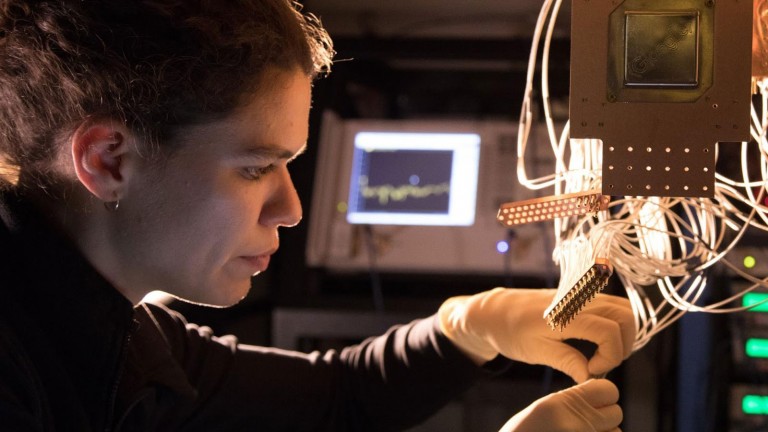A US national plan for quantum technologies could be delayed by the country’s midterm elections. At a meeting next week, the White House’s Office of Science and Technology Policy (OSTP) will stress the importance of getting a national strategy in place soon, MIT Technology Review has learned.
The news: On September 24, the OSTP is getting academics, policymakers, and businesspeople together to talk about developments in quantum computing and related fields. The meeting comes at a critical juncture. Congress is working on draft legislation to create a 10-year US National Quantum Initiative (NQI), with almost $1.3 billion of funding, to boost research efforts and develop a quantum workforce. But it may not be finalized before the midterm elections in November, and it could then get delayed until 2019.
The background: Developments in quantum physics can be harnessed to create everything from super-powerful quantum computers to unhackable communication networks. The technologies are still in their infancy but could lead to significant advances in a range of fields, from materials science to machine learning. Things like secure communications and quantum sensors also have important national security applications.
China’s quantum leap: The US fumbled the development of a national strategy for artificial intelligence, and that’s partly why China has overtaken it in many AI fields. It should learn from that experience. The country has a head start in quantum, but Chinese researchers are catching up fast: a recent report from the Center for a New American Security notes that in some areas, like quantum communications, they have already surpassed the US. China has plans to invest billions of dollars to advance its efforts further.
Political risk: The House recently passed its NQI bill, and the Senate is working on similar legislation. But quantum experts we spoke to fear the Senate’s effort could falter in the run-up to the midterms in early November. A quantum bill could still get signed into law during a lame-duck session after the midterms, but if it doesn’t the effort would have to start all over again in 2019.

